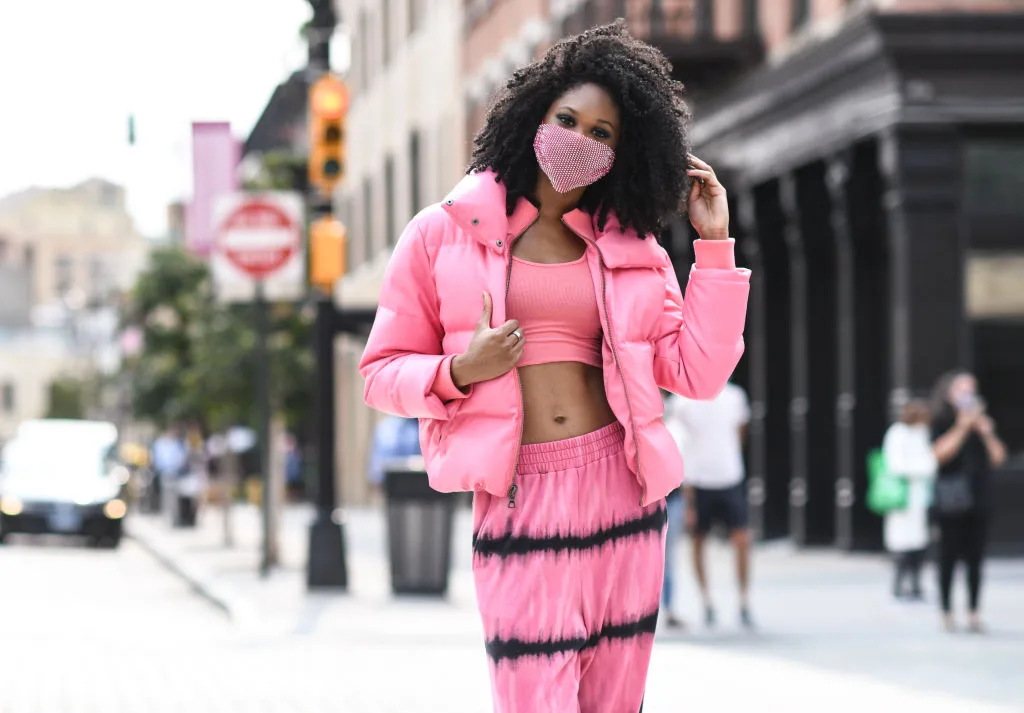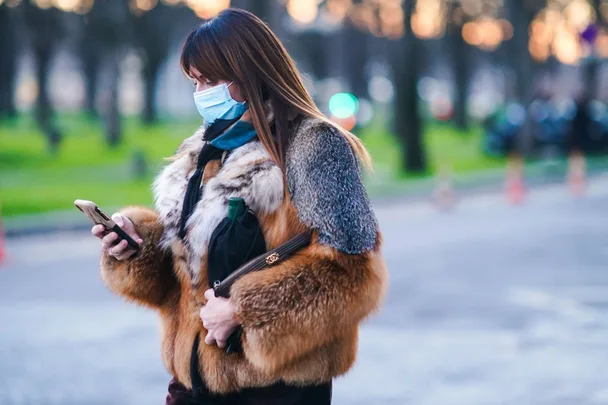The Omicron variant is here in Australia, just in time to ruin our Christmas plans.
The first thing to know is that people aren’t being told if they have Omicron or Delta.
“I haven’t been told which variant I have,” Stephanie, a 32-year-old woman in Sydney who is double vaccinated, told marie claire Australia. “No clue. In fact, the only contact I’ve had from NSW Health is a text message saying I’m positive and need to isolate and which symptoms to seek emergency medical care for. It’s been kind of confusing, really.”
Her first clear symptom of Covid was intense body aches, followed by a fever. “I woke up in the early hours of the morning with chills and was burning up, she said. “I’ve also experienced extreme fatigue, pretty awful headaches, a bit of a cloudy head, some queasiness in the tummy and have been quite congested—runny nose and sneezing a fair bit.”
Preliminary data from an insurance company in South Africa, where the strain was first detected, suggests that early Omicron symptoms often include a scratchy or sore throat, nasal congestion, a dry cough and muscle pain, particularly lower back pain. Doctors in the UK are also warning of “drenching night sweats”.

However, these are also symptoms of earlier strains of Covid, with experts warning there will probably be a fair bit of overlap. One difference that does appear to be emerging is that people infected with Omicron are less likely to be reporting a loss of taste and smell.
One of the few people in the world who can personally attest to the difference between Delta and Omicron symptoms is Tshepo Mompei, a South African fitness instructor who has been infected with both.
She told the ABC that the symptoms are “totally different”, in her experience. With Delta, she lost her sense of taste and smell, and took 10 days to recover. She was double vaccinated after that infection, but still tested positive to Omicron, reporting itchy eyes, a headache, and the feeling of weight bearing down on her body.
“You know when you’ve been in the dark for too long, and then when you go into the light?” she said. “It is like something is blasting your eyes.”
So what should we do? Is Christmas cancelled?
State and federal leaders appear to be resisting calls to bring back face mask mandates, despite experts urging us to keep them on.
What that means for those of us concerned with catching Omicron—or infecting people with compromised immune systems—is that we have to shoulder a level of personal responsibility during a public health crisis.
“There needs to be a balance between government intervention (i.e. mandates) and personal responsibility (empowering people to make good decisions),” Dr Nick Coatsworth, an infectious diseases physician and former Deputy Chief Medical Officer, told marie claire Australia.
“I think the bottom line for symptoms is, if you think you have a cold, get tested for Covid. The variant is highly likely to be milder, especially in young adults, and the focus now will be on being able to identify people who have Covid and asking them to isolate. We can only do that if people get tested. That is especially important if email or friends have health conditions that put them at risk of more severe Covid.”
If you are visiting loved ones with compromised immune systems at Christmas, experts are urging you to use a rapid test first, keep gatherings outdoors, and if possible, avoid hugging.
“Omicron is here in Australia, it will be an unwanted guest with us for Christmas, but we can and must do what we can to reduce its impact on each of us and our loved ones,” Chief Medical Officer Paul Kelly said in a statement.
He urged everyone who is eligible for a booster vaccination to get one, as well as wearing face masks indoors.
However, early indications around hospitalisation, ICU admission and death show that Omicron could be far less than Delta and other variants,” he said “Importantly, after almost four weeks of Omicron in Australia there are currently no confirmed Omicron cases in ICU and no deaths confirmed to date.”

PCR vs rapid tests: which one should you get?
Accessing any kind of Covid test is pretty difficult at the moment, with long wait times being reported for PCR (nasal swab) tests, and rapid antigen tests flying off the shelves. However, testing remains a crucial part of the public health response.
But which one should you get and when?
Broadly speaking, PCR tests are much more accurate, but can take a day or more to return results. Rapid tests are less accurate, but can return results in 15 to 20 minutes and be done in your own home.
PCR tests look for SARS-CoV-2 genetic material, and can detect Covid even in the early stages. If you have Covid symptoms, or have been exposed to Covid, you must get a PCR test.
Rapid antigen tests detect viral proteins, and align with PCR tests roughly 80 to 95% of the time, provided the test is done within a week of symptoms first appearing. They’re used as a screening agent, rather than a diagnostic; if a rapid test says you’re positive, then you have to go and get a PCR test.
Experts recommend taking one before visiting an immunocompromised person, or before visiting places like aged care facilities.










